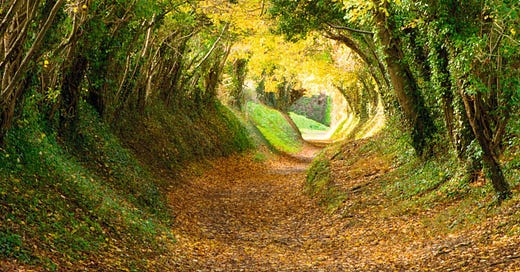Mah Tovu B'machaneh - Finding Goodness at Summer Camp
I had an incredible summer immersed in Jewish day camp.
Hello, readers! It’s been too long since I’ve published and I’m hoping to continue to add to this Substack whenever possible. This past summer, I worked as a camper care specialist at Ramah Day Camp. While the work is challenging at times, working collaboratively, supporting kids and staff, bringing joy and Jewish learning to the community felt very meaningful and fulfilling for me. The following is a dvar Torah that was sent to the community to teach about the weekly Torah portion. This was from Balak and while we have moved beyond that in our weekly reading and we are no longer in a camp setting or frame of mind, the messages of finding the good around us still resonate.
Finally, our hearts continue to break by the tragedy of just one week ago: the murders of six Israeli hostages in Gaza, including our beloved Hersh Goldberg-Polin. May their memories be for a blessing, may the hostages be returned NOW! and may the pain and bloodshed end.
Thank you for reading!
Every morning, throughout our machane, you can hear the sounds of Hebrew prayers being sung during each eidah’s tefillah prayer session. One of the popular ones is Mah Tovu, a song with accompanying hand motions..” Let’s see your tents!”, the madrichim shout and the campers all raise their arms over their heads with their hands together to simulate a tent. This is because of the line “Mah Tovu Ohalecha Yaakov, Mishkenotecha Yisrael, how good are your tents, O Jacob, your dwelling places, O Israel.” Numbers 24:5
This week, we read the Torah portion where this line originates. In parashat Balak, the sorcerer Bilaam is hired by the king Balak to curse the people of Israel who he fears may overtake him in might. Rather than curse the people, Bilaam blesses them instead with the words of this daily prayer. While in ancient times, the tents he referenced were the literal dwelling places of the people, over time the tents are understood to be our gathering places as a people: our synagogues, our houses of study and perhaps even our summer camps.
We are instructed to say this prayer upon entering the synagogue daily. What follows the line from the Torah are verses from Psalms that add a personal nature to the prayer. The prayer ends with Psalms 69:14 : "As for me, may my prayer come to You, Adonai, at a favorable time. O God, in your abundant faithfulness, answer me with Your sure deliverance." It is an interesting juxtaposition to place a communal blessing from the Torah next to personal prayers. We often sing this prayer as a group (and there is a silly version that the Nitzanimers sing afterward), but it was likely intended to be an individual preliminary prayer to get people ready for the prayers that require a quorum.
While we tend to focus our attention primarily on the tents described in the verse, I like to focus on the word “tov”, which is Hebrew for “good”. Every morning since camp began, I have walked to the main part of the Wellspring campus from the staff parking area, which is essentially in the middle of the woods. We are surrounded by trees and the road is a path of gravel that we share with insects, rabbits, turtles, snakes and other types of wildlife. The other morning, I was on my way when I just stopped in my tracks. The canopy of trees above me with their leaves swaying in the breeze momentarily took my breath away. Wow, I thought. Mah tovu/ how great!
The first time we see the word “tov” in the Torah is in Genesis during the creation of the world in Genesis 1:10. “God called the dry land Earth and called the gathering of waters Seas. And God saw that this was good.” Noticing the goodness in the natural world isn’t difficult while we are at camp, but it does not stop there. After spending these last four weeks at camp, I see so much created on a daily basis.
Each day at camp is full of moments of awe like the one I experienced. Seeing kids connect with each other over shared interests like Pokemon, sports or music, watching them overcome challenges like finally making it to the top of the climbing tower or figuring out how to twist the paper just right in art, hearing them practice new Hebrew words or spend an entire bus ride working on a lanyard or creating the longest rainbow loom chain. We are so fortunate to have a program of Jewish learning built-in to the camp day that connects the activities the campers love with Jewish concepts and values. I also notice how a summer at camp turns our staff team into leaders as they experiment with their own budding leadership styles.
The “tov” that we see at camp is both communal and personal, just like the Mah Tovu prayer itself. The ruach, the spirit, that we see on a regular basis during times like the shirah/singing session after lunch or on the migrash/the sports field during a game of gaga exemplifies this as well as the moments of personal growth like taking on new challenges, making new friends while forming their own unique Jewish identities.
May we all be mindful of seeing the ‘tov’ in our communal spaces and open our hearts to recognizing the good within.
Shabbat shalom!




So happy Higher & Higher is back and that these campers & counselors were able to enjoy the gift of you this summer!